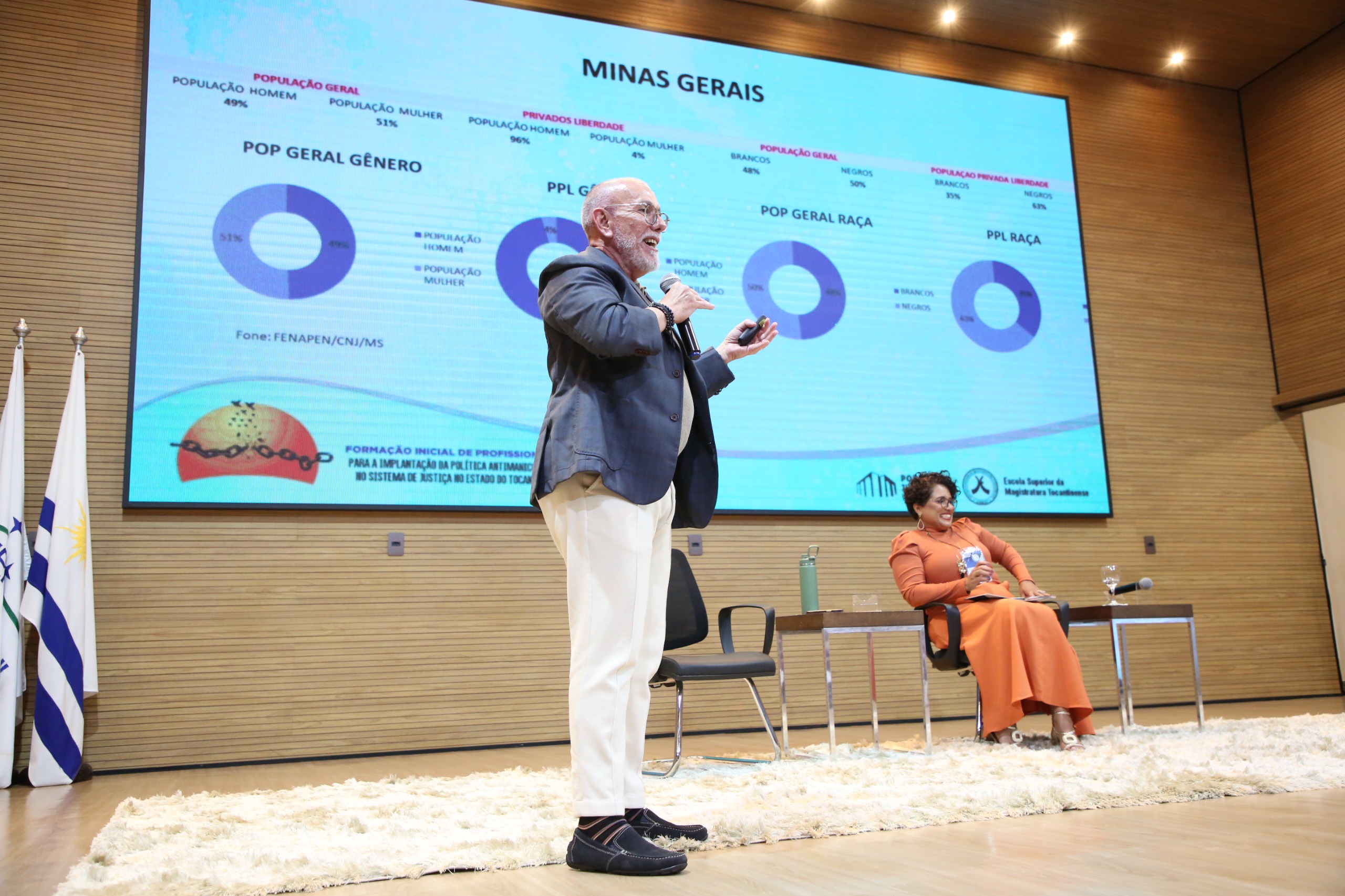
“The person in conflict with the law and the anti-asylum struggle from the perspective of the PNAISP - National Policy for Comprehensive Health Care for Persons Deprived of Liberty in the Prison System” was the theme of the lecture by Carlos Alberto Pereira de Oliveira, a Professor at the State University of Rio de Janeiro, during the Initial Training of Professionals for the Implementation of the Anti-Asylum Policy in the Justice System of the State of Tocantins, on Wednesday afternoon (August 28th), in the auditorium of the Court of Justice of the State of Tocantins (TJTO).
During the lecture, the professor spoke about the constitutional right to health policy for all those deprived of their liberty, pointing out that one cannot talk about the anti-asylum struggle as a solution to the issue of mental health suffering, which is part of a public health policy. “I'm not here to discuss how to apply the anti-asylum law,” he said, adding that it is necessary to know what prison health policy is all about.
Talking about the term prison health, Carlos Alberto criticized it. “We have to change that. I'm only going to use prison health because it's in the policy, because otherwise I'd say health for those deprived of their liberty. Health belongs to people and not to the place where people are being cared for, because when you say prison health, it's because there is a prison health and a health outside prison and there isn't, what exists is SUS health. It's all the policies that are within the SUS and not those that the prison Director thinks can be implemented”.
According to him, the ruling of the Judge does not say that the prisoner is prohibited from exercising any of the rights he has as a Brazilian citizen. “The only thing he has lost in that sentence is his freedom. He is not prevented from studying, from having the right to full healthcare,” said the Professor, explaining that these concepts were created from the prejudice. “And these prejudices only increase when they come to the issue of treating people who are suffering. And in a prison, in a prison unit, it's not just people who are under security measures.”
Regarding the treatment of mental health following the Resolution 487 of the National Council of Justice (CNJ), the Professor said that it is not simple: “Each municipality, region is going to implement the Resolution in the reality of its territory. It's a big dilemma because I have to include the territory in this deinstitutionalization.”
Carlos Alberto also noted that mental health is not just a mental institution and that the Anti-Asylum Policy is the way to solve hospitalization, but it doesn't solve it for people deprived of their liberty and who need mental health care.
Our mental health policy is beautiful on paper, but very fragile,” said Professor Carlos Alberto.
The professor also emphasized that it is necessary to think not only about the health of those deprived of their liberty, but also of family members and prison workers. “The suffering of imprisonment affects us. We go home with what we see and that also makes us ill. You have to take a very specific look and be careful with the health of the prison health workers.”
The lecture was given by Helenilva Custódio de Melo, a social worker from the State Health Department.
The PNAISP
The Ministry of Health launched the National Policy for Comprehensive Health Care for Persons Deprived of Liberty in the Prison System (PNAISP), instituted by the Interministerial Ordinance No. 1 of January 2nd, 2014, with the aim of expanding the health actions of the Unified Health System (SUS) for the population deprived of liberty, so that each prison health service would be seen as a point of care in the Health Care Network.




 (1)_thumbnail_thumbnail.jpeg)
 (1)_thumbnail_thumbnail.jpeg)
 (1)_thumbnail_thumbnail.jpeg)
 (1)_thumbnail_thumbnail.jpeg)
 (1)_thumbnail.jpeg)
 (1)_thumbnail.jpeg)
 (1)_thumbnail.jpeg)
 (1)_thumbnail.jpeg)
